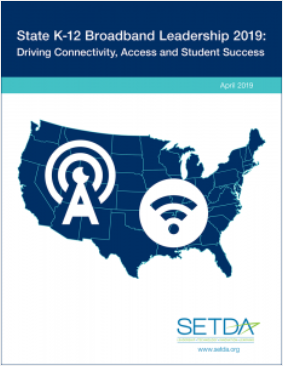
Register Now! - NEBSA 2026 Annual Conference
NEBSA 2025 Annual Virtual Conference Registration Open
FCC Tribal License Reporting Deadline Approaches
NEBSA 2023 Conference Registration
Free Webinar - T-Mobile Migration 2022 - What's Next?
FCC Releases Public Notice for EBS Auction 108
FCC Commits Nearly $64 Billion in Latest Round of Emergency Connectivity Funding
FCC Releases Notices on White Space Auction
FCC Approves Additional 2.5 GHz Spectrum Licenses to Serve Alaska Native Communities
New Chair Nominated for the FCC
NEBSA 2022 Conference Registration
Innovation and Education In 2.5 GHz Webinar
Save the Date - NEBSA 2022 Annual Virtual Conference (Feb 28 to Mar 1, 2022)
First interactive, public broadband digital map released
NEBSA Provides Informative Webinar on 2.5 GHz Issues for Tribes
SAVE THE DATE FOR AN IMPORTANT NEW WEBINAR ON 2.5 GHz LICENSES FOR TRIBAL LANDS!
T-Mobile Sponsors 2022 NEBSA Conference
Acting FCC Chief States "Homework Gap" Vote by Mid-May
FCC Creating Rules for Broadband Discount Program
NEBSA 2021 Annual Virtual Conference Closes
Do You Have Potential Regulatory Issues Lurking In Your Future?
Commissioner Jessica Rosenworcel Named as FCC Acting Chairwoman
 The State Educational Technology Directors Association (SETDA) has provided their support for maintaining the educational mission of EBS. In their recently released report, State K-12 Broadband Leadership 2019: Driving Connectivity, Access and Student Success; SETDA supports EBS educational mission and the important educational services and benefits that EBS licensees provide communities.
The State Educational Technology Directors Association (SETDA) has provided their support for maintaining the educational mission of EBS. In their recently released report, State K-12 Broadband Leadership 2019: Driving Connectivity, Access and Student Success; SETDA supports EBS educational mission and the important educational services and benefits that EBS licensees provide communities.
 In the report, SETDA notes supports the continuance of the educational eligibility and use requirements for Educational Broadband Service (EBS) spectrum.
In the report, SETDA notes supports the continuance of the educational eligibility and use requirements for Educational Broadband Service (EBS) spectrum.
SETDA also noted that making this spectrum available to rural educators has the potential to drive rural deployment, increase access to educational services, spur economic growth and close the homework gap.
The report also featured a quote from the Utah Education and Telehealth Network, " We believe that EBS should continue to be an asset optimized to benefit educators and students. In each geographical area, EBS should be made available to the entity that can best leverage it's capacity and potential in offering educational internet to the community."
The State Educational Technology Directors Association is the principal nonprofit association representing US state and territorial educational technology leaders. SETDA's mission is to build and increase the capacity of state and national leaders to improve education through technology policy and practice.
The full report is available at https://www.setda.org/master/wp-content/uploads/2019/04/Broadband-State-Leadership-2019_final.pdf